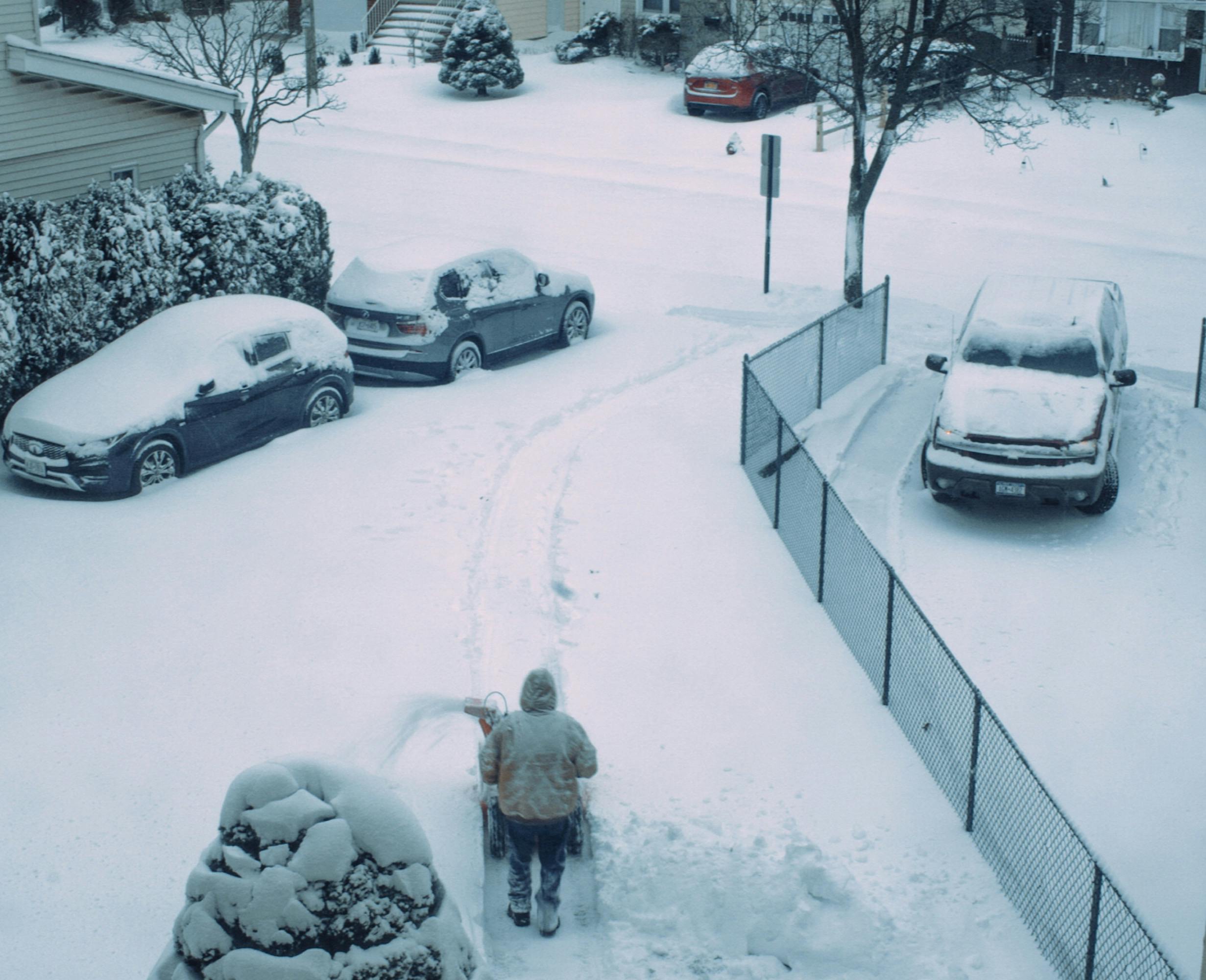Power outages are one of those situations that can happen unexpectedly, and power outage survival requires careful planning and preparation. Whether it’s due to a natural disaster, equipment failure, or a man-made disruption, power outages are a common yet frequently overlooked emergency situation. While a short-term blackout might be annoying, an extended power outage can become a life-threatening situation if you aren’t prepared. In this guide, we’ll walk you through the best strategies and tools for surviving a power outage, ensuring that you and your family are safe, comfortable, and well-prepared during these challenging times.
Why It’s Important to Prepare for Power Outages
In an increasingly interconnected world, we depend on electricity for nearly everything—lighting, heating, cooling, cooking, communication, and medical equipment. The thought of losing power for an extended period may feel unsettling, but it’s essential to acknowledge that power outages can occur during any emergency, from hurricanes to severe winter storms or even equipment failures at power plants. If you’re not adequately prepared, extended blackouts can disrupt daily life and pose serious risks, especially to vulnerable populations like the elderly, children, and those with medical conditions that require electricity.
A power outage can lead to:
- Loss of communication: Without power, you may lose access to your phone or internet, making it difficult to stay informed or contact others.
- Lack of heat or air conditioning: Extreme temperatures, whether hot or cold, can be dangerous without a reliable source of heat or cooling.
- Food spoilage: Refrigerators and freezers won’t function without electricity, causing perishable food to spoil quickly.
- Limited lighting: Without a backup light source, navigating your home safely in the dark can be difficult and dangerous.
- Medical challenges: Some medical equipment, such as oxygen machines or refrigerated medications, require a constant power supply to function correctly.
Preparation is the key to minimizing these risks and ensuring you can survive and thrive during an extended blackout. Let’s dive into practical tips and tools for power outage survival, including how to stay safe, maintain comfort, and be self-sufficient during blackouts.
1. Create an Emergency Power Plan
The first step in preparing for a power outage is creating a comprehensive emergency power plan. This plan should include steps for ensuring your safety, maintaining basic needs, and keeping in touch with loved ones.
- Know the risks: Understand the types of power outages that are most likely to affect your area. In some regions, winter storms are more common, while other areas may experience hurricanes or wildfires that cause power disruptions.
- Identify emergency contacts: Make sure everyone in your household knows who to contact in the event of a power outage, and have a list of emergency numbers, including local utilities, fire department, and medical services.
- Determine backup power needs: Assess your backup power needs by considering essential items such as phones, medical equipment, refrigerators, and lights.
- Set up a communication strategy: Make sure everyone in your household knows how to check in with one another and where to find important supplies. This is especially crucial if family members are spread across different locations or you have elderly relatives who may need assistance.
For detailed information on power outage preparedness, check out the American Red Cross Power Outage Preparedness guide.
2. Invest in Backup Power Solutions
When the grid goes down, backup power solutions can be a lifesaver. There are several options available depending on your budget, space, and power needs.
Portable Generators
A portable generator can provide temporary power for essential appliances, such as lights, refrigerators, and medical devices. Generators ensure effective power outage survival, especially during extended blackouts. Generators come in various sizes and capacities, so choosing one that matches your power requirements is important.
- Consider your wattage needs: Before purchasing a generator, list the devices you need to power and check their wattage requirements. Multiply this by the number of devices you plan to run at once to ensure the generator can handle the load.
- Fuel types: Generators run on different fuels, such as gasoline, diesel, or propane. Consider which fuel source is easiest for you to store and access, and ensure you have enough fuel to last through an extended outage.
- Safety: Always operate your generator outside, away from windows, doors, or vents, as the exhaust contains carbon monoxide, which can be deadly if inhaled. Be sure to follow all manufacturer safety guidelines.
Solar-Powered Generators
For a more sustainable and quieter option, solar-powered generators can provide reliable backup power without the need for fuel. These generators rely on solar panels to charge batteries during the day, which can then be used to power essential devices when the sun goes down.
- Limited power: While solar generators are eco-friendly, they tend to provide less power than traditional generators, making them ideal for smaller devices like phones, laptops, and lights.
- Longer recharge time: Solar generators take longer to charge, so it’s essential to plan ahead and ensure they are fully charged before an outage occurs.
Uninterruptible Power Supplies (UPS)
UPS units are ideal for providing short-term backup power to critical devices, such as computers, medical equipment, or routers. While they don’t provide long-term power, they can keep your devices running long enough to power down safely or transition to another power source.
- Battery life: Most UPS units can run devices for 30 minutes to an hour, depending on the load.
- Essential devices: These are most beneficial when you need to keep essential items running long enough for an orderly transition to another power source.
3. Stock Up on Essential Supplies
When preparing for an extended power outage, it’s important to stock up on essential supplies to ensure your power outage survival plan covers all the basics, such as food, water, and medical needs
Water
Having an adequate supply of clean drinking water is critical during an outage, especially if the outage affects water treatment facilities. Plan for at least one gallon of water per person per day for drinking, cooking, and sanitation.
Non-perishable Food
Stock up on non-perishable food items that don’t require refrigeration, such as:
- Canned goods (soups, beans, vegetables, fruits)
- Grains (pasta, rice, oats)
- Dried fruits and nuts
- Granola bars, energy bars, and trail mix
- Powdered milk or canned evaporated milk
- Instant noodles or ramen
It’s also helpful to have a manual can opener on hand for opening canned goods if you don’t have electricity.
First Aid Kit
A well-stocked first aid kit should be a part of your emergency supplies. Include items such as bandages, antiseptics, gauze, pain relievers, prescription medications, and any necessary medical equipment.
Batteries and Flashlights
Flashlights are essential for navigating your home during a power outage, and extra batteries are a must. Consider investing in headlamps or battery-powered lanterns for hands-free lighting.
- LED flashlights: LED flashlights are energy-efficient and last much longer than traditional incandescent bulbs.
- Battery-powered lanterns: These provide bright, wide-ranging light, which can help illuminate large areas such as a living room or kitchen.
Power Banks
If you rely on smartphones or other devices for communication during an outage, make sure to have a reliable power bank. Check out our guide on the Top 4 Power Banks for Emergencies to find the best options to keep your devices charged during a blackout.
Warm Clothing and Blankets
If you live in an area with cold winters, consider investing in warm clothing, sleeping bags, and blankets to maintain body heat during a blackout.
- Thermal blankets: Emergency thermal blankets can be lightweight and space-saving, yet provide substantial warmth during extended blackouts.
- Heated blankets: Battery-powered or car-heated blankets can be life-saving in cold weather.
4. Preserve Food and Manage Resources
During a power outage, effective power outage survival includes proper food storage and resource management to avoid spoilage and ensure you have enough to last. Here are some tips to help you preserve food during an extended power outage:
- Keep fridge and freezer doors closed: A full freezer can keep food frozen for up to 48 hours if unopened, while a refrigerator can keep food safe for about 4 hours.
- Use coolers: If you have extra ice or gel packs, coolers can help extend the life of perishable food. Ensure your coolers are insulated well and keep them in a cool, shaded spot.
- Cook perishable foods first: If your power goes out and you’re able to cook, use up your perishables, such as meats, dairy, and eggs, before they spoil.
5. Keep Your Communication Open
Power outages often coincide with communication failures, making it difficult to stay informed. Here are some tools to stay connected:
- Battery-powered radios: A battery-powered or hand-crank radio can help you stay updated with local news, weather, and emergency broadcasts.
- Chargers: Make sure you have portable battery chargers or power banks for your mobile devices, so you can still charge your phones even when the grid is down.
- Walkie-talkies: For extended outages, a pair of walkie-talkies can help you stay in contact with family members or neighbors.
6. Plan for Medical Needs
If anyone in your household relies on electricity for medical equipment, make a special plan to ensure their safety during an outage.
- Backup power for medical devices: Consider investing in a battery backup or generator specifically designed for medical devices like oxygen machines, ventilators, or CPAP machines.
- Medications: Make sure you have extra prescriptions on hand in case of delivery delays or pharmacy closures due to power outages.
7. Stay Safe and Calm
During an extended power outage, it’s important to remain calm and focused. Ensure that everyone in your household knows what to do, and regularly check on your backup power supplies, water, food, and medical needs.
Staying calm and being mindful of fire hazards is essential for power outage survival during extended blackouts. If you haven’t already, consider creating a family evacuation plan to prepare for potential emergencies beyond a power outage. You can learn how to do this with our guide on How to Create a Family Evacuation Plan.
Conclusion
Power outages can be disruptive and potentially dangerous, but with the right preparations, you can ensure your safety and comfort during extended blackouts. By investing in backup power solutions, stocking up on essential supplies, preserving food, and keeping communication open, you can better handle the challenges that come with losing power. The key to surviving any power outage is preparation—so start today, and you’ll be ready if and when disaster strikes. Stay safe, stay prepared, and make sure your family is equipped to weather the storm.





Leave a Reply